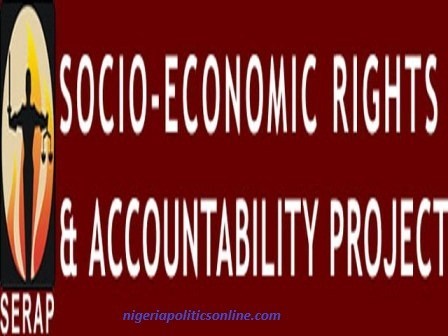Socio-Economic Rights and Accountability Project has sent an open letter to President Muhammadu Buhari urging him to “urgently” instruct Mr Abubakar Malami, SAN, Minister of Justice and Attorney General of the Federation to withdraw the proposed executive bill to amend the Economic and Financial Crimes Commission Act.
SERAP said if passed and signed into law, the creation of the new agency “will severely undermine the commission’s independence, and render it a ‘toothless bulldog or toothless tiger’.”
Also, the Presidential Advisory Committee Against Corruption headed by Professor Itse Sagay had last week raised concerns that “the government is pushing a bill to amend the EFCC Act, 2004, which will demolish the anti-corruption infrastructure of Nigeria, and confer an enormous power of control of the anti-graft agency on the office of the Attorney General of the Federation.”
In the letter dated 19 September 2020 and signed by SERAP deputy director, Kolawole Oluwadare, the organisation said, “The bill, which is apparently designed to undermine the independence, integrity, and freedom of action of anti-corruption agencies, ignores the seriousness of grand corruption and its impact on Nigerians’ human rights, the rule of law, principles of good governance, development, as well as the threat corruption poses to the country’s constitutional order.
“By pushing to turn the EFCC into a department in the Federal Ministry of Justice, and effectively bring it under the control of the Attorney General; and to subject the appointment of the agency’s head to the approval of the Directorate of State Security, your government would seem to indicate that it is not interested in combating corruption and halting its putrefying effects.
“Should the proposed bill be passed and signed into law, SERAP would take all appropriate legal actions to challenge its legality, in the public interest, and to ensure that anti-corruption agencies in Nigeria can operate independently and effectively.
“This bill is entirely inconsistent and incompatible with the Nigerian Constitution of 1999 [as amended] and the country’s international anti-corruption obligations including under the UN Convention against Corruption and the African Union Convention on Preventing and Combating Corruption to which Nigeria is a state party.”
Credit: The PUNCH

Call:
Sandra - 07069148333
Pauline - 08174374150
Scholastica - 09060678434













